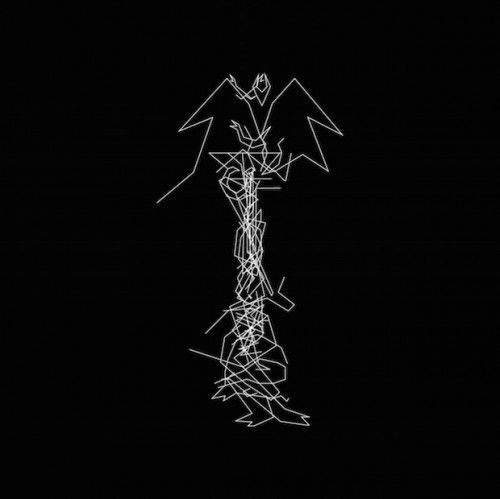

It takes time to unravel all of the information surrounding Oneohtrix Point Never’s new release, Garden of Delete. The enigmatic producer Daniel Lopatin, otherwise known as electronic experimentalist Oneohtrix Point Never, created a Twitter account and official website for a fictitious industrial band called Kaoss Edge, whom he cites as an influence for this record. In addition to this he announced the album sitting down with an inquisitive adolescent alien named Ezra to discuss how he made it. This had to be some of the most innovative viral marketing to promote one of the most inventive records I’ve ever heard.
If you are familiar with Lopatin’s repertoire under this moniker, you know he makes elaborate, avant-garde soundscapes that are well textured and without traditional structure, especially his last effort, the much lauded 2013 album R Plus Seven (his first with legendary imprint Warp Records), which many considered a major departure from his typical work. Here with Garden of Delete, he has evolved his music yet again into an electronic hybrid of sounds that cannot be classified by genre. The 12 tracks of this album are replete with midi glitches, jarring digressions and cerebral constructs. It is a harrowing collection of songs that burns your synapses while you bask in its sumptuous wonder.
The intro track features conflicting voices that sound like the communication between extraterrestrials, which gives the album an unsettling opening before going into the hyperactive start and stop of “Ezra”, a contribution from the namesake alien perhaps? Wherever it comes from it shows you what’s in store for you when you enter GoD, the song features synth sweeps punctuated by vocal bites, before you get too use to this arrangement it gets interrupted by a reverb-drowned guitar before clamorous noise washes it all out.
An ambient interlude, “Eccojamc1”, keeps the tension high before the hard-hitting “Sticky Drama” comes in, a chilled piano melody gets crushed by abrasive bass stabs complemented with mangled squeak vocal samples, what happens next is an inexplicable myriad of noises, melody comes in and out as “Sticky Drama” indulges in aural chaos, a brilliant composition that is disguised as sensory overload. The halfway point of GoD really hooked me in with the sprawling eight-minute track “Mutant Standard”, the song opens with a galloping pulse before it unfurls into a fusillade of glossy synths and disjointed audio bits, this transformative song is really just four songs in one and the final crescendo ties them all together into a epic motif of sounds, layered over each other.
The latter half of the record is full of gorgeous and noisy cuts like “Animals”, which feels like the underwater level of an old 8-bit video game turned into the closest thing Lopatin can get to a ballad, complete with vocals manipulated into an intelligible high register over bruised electronics. The following track, “I Bite Through It” is a frenetic burst of sounds that keeps you on the edge of your seat, with a few fleeting moments of calm within. A personal favorite of this part of the record is “Freaky Eye”, which feels like listening to the radio on a distant world, flipping through channels to see what’s on, the melody(s) Lopatin puts here feels like something out of a science fiction film.
Every loud, abrasive break is countered with a surprisingly mellow moment, like the records closer “No Good”, which opens quiet but for one last time becomes a loud display of synths, which rattle through your ears with seismic power before it descends into a crumbling ambience of plucked strings and chords. While there is a lot of bombast through GoD, the substance does not get blurred, there are shimmering beacons of otherworldly melody that peak in through the many walls of noise on this album. There are many moments of distress, trying to process all the information vying for your attention and moments of this surreal calm when seas settle before the next salvo of information.
Trying to deconstruct each track is not easy, but that’s the point, one thing Lopatin has mastered is layering, every song has so much going on it’s impossible to pinpoint one element as so many other sounds take your attention, the intricacies of his music shows his painstaking dedication to crafting dense, unparalleled songs. Is he an alien? Or a machine? No, but it is easy to be fooled if you give into this brilliant aesthetic he has cultivated with his music and the peripheral material he surrounds it. Oneohtrix Point Never is the electronic music version of science fiction and Garden of Delete is like entering a digital world and traversing corrupted data, or well-designed data pretending to be malfunctioning. Sure this isn’t exactly an easy listen, but it is a wonderful experience from start to finish, through all of the noise, the confusion and glitches, you come out of a masterful artist’s greatest work yet, no matter how otherworldly.
4.5/5